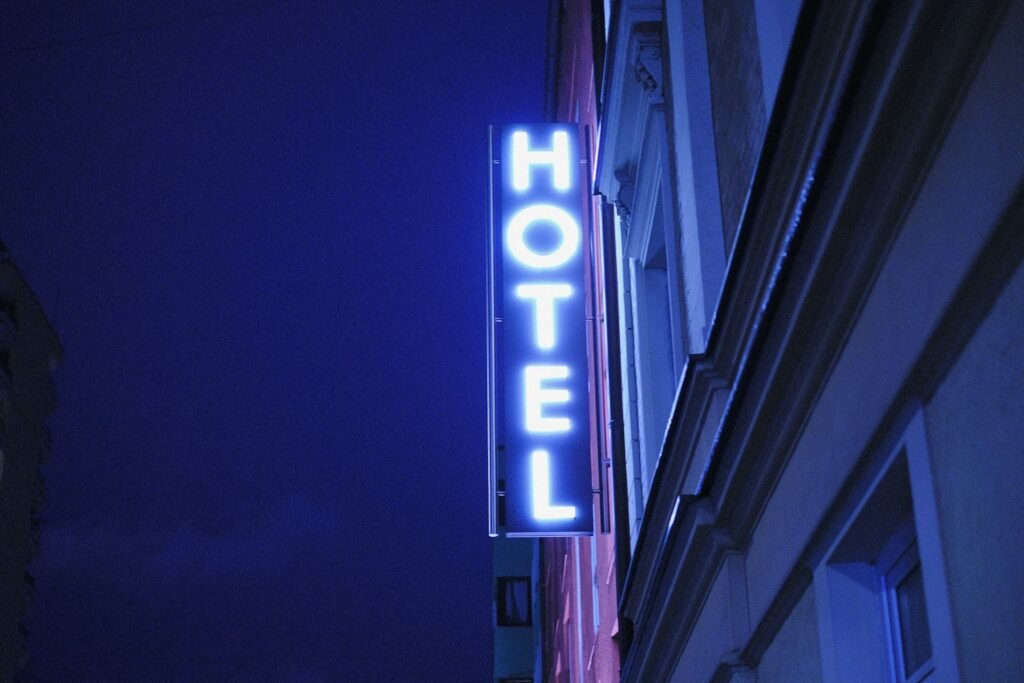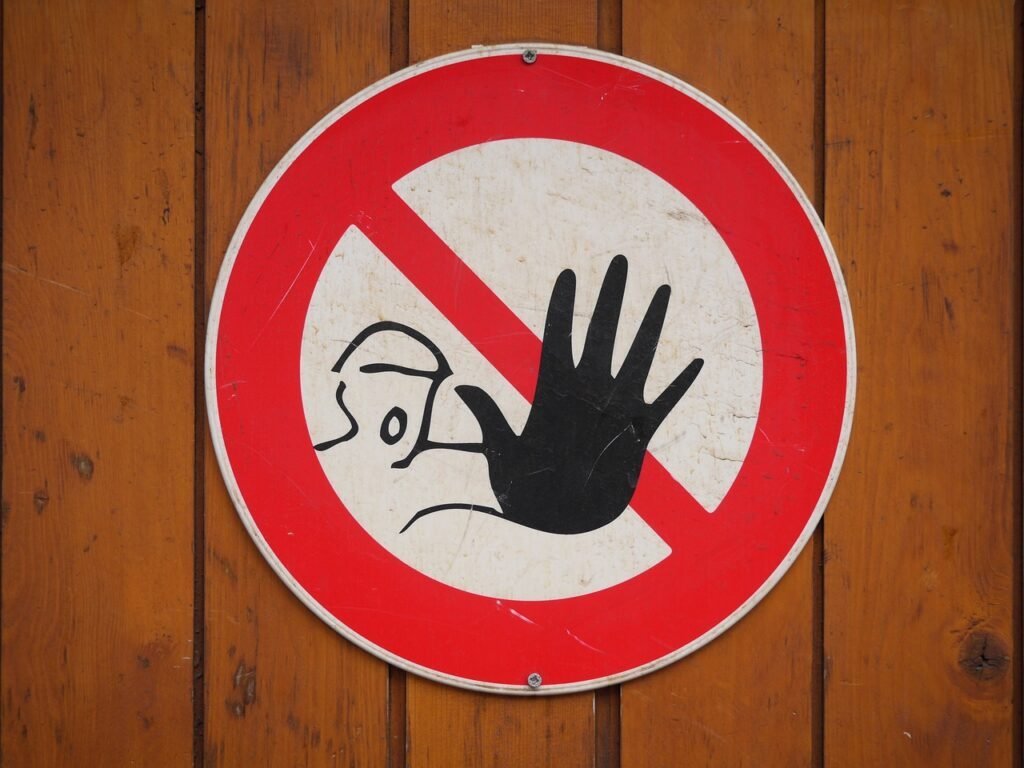
Let’s talk about the digital landscape for hotels in 2024. You’ve invested time and resources into creating a beautiful website for your property, but visibility remains a challenge. As someone who’s been in the trenches of digital marketing for over a decade, I can tell you that backlinks are crucial for getting your hotel noticed online. Through years of refining techniques and staying ahead of SEO trends, I’ve developed a deep understanding of how to effectively build hotel website backlinks. Are you ready to significantly boost your online visibility and see a real impact on your bookings? Let’s explore the strategies that can make a difference for your hotel’s digital success.
Understanding the Importance of Backlinks for Hotel Websites
In the digital landscape of 2024, backlinks remain a crucial factor for hotel websites aiming to improve their online visibility. Essentially, backlinks function as digital word-of-mouth, with each one serving as a recommendation from another website to search engines, signaling that your site is trustworthy and valuable.
However, it’s critical to understand that not all backlinks are created equal. The focus should be on quality rather than quantity. High-quality backlinks can significantly boost a hotel’s search engine rankings, while low-quality or spammy links can potentially lead to penalties and decreased visibility.
What constitutes a quality backlink for a hotel website? Relevance and authority are key factors. Links from reputable travel blogs, local tourism boards, or industry-specific publications carry more weight than those from unrelated or low-authority sites. These high-quality backlinks tell search engines that your hotel website is a credible source of information in the travel and hospitality niche.
For hotels, local SEO plays a particularly important role. Backlinks from local business directories, chamber of commerce websites, and event pages can provide a significant advantage. These local connections not only improve search rankings but also drive targeted traffic from potential guests in your area.
It’s worth noting that building quality backlinks is a gradual process that requires consistent effort. While it may not yield overnight results, the long-term benefits for a hotel’s online presence can be substantial. As your backlink profile grows stronger, you’re likely to see improvements in search rankings, increased organic traffic, and ultimately, more bookings.
In the competitive hotel industry, backlinks serve as a form of digital currency. They differentiate your website from competitors and signal to search engines that your site is a valuable resource for travelers. This can be the deciding factor in whether a potential guest finds your hotel or ends up booking with a competitor.
Implementing a solid backlink strategy is crucial for any hotel aiming to succeed in the digital space. It’s not just about having a beautifully designed website with great content – although that’s important too. The authority and trust signals that quality backlinks provide can significantly amplify your hotel’s online presence and help you reach a wider audience of potential guests.
As we delve deeper into backlink strategies for hotels, remember that the goal is to create a diverse and natural-looking backlink profile. This approach not only improves your search engine rankings but also creates genuine connections within the digital travel community, mirroring the hospitality you offer in the real world.
Identifying High-Quality Backlink Opportunities for Hotels
In the competitive landscape of hotel digital marketing, identifying valuable backlink opportunities is crucial for improving your website’s authority and visibility. Let’s explore some effective strategies for finding high-quality backlinks in the hospitality industry.
Competitor analysis is a fundamental starting point. Utilizing tools like Ahrefs or SEMrush can provide insights into your competitors’ backlink profiles. This analysis often reveals unexpected sources of quality links that you may not have considered previously.
Local directories and tourism websites are particularly valuable for hotels. Securing listings on your local chamber of commerce site, regional tourism boards, and city guides can significantly boost your local SEO efforts. These sources are often overlooked but can provide substantial benefits to your hotel’s online presence.
Industry-specific publications present another excellent opportunity. Getting mentioned or featured in respected hospitality journals or trade magazines can greatly enhance your site’s authority. While securing these placements may require effort, the payoff in terms of SEO value and industry credibility is considerable.
Travel bloggers and influencers have become increasingly important in the digital marketing landscape. Cultivating relationships with these content creators can lead to valuable backlinks. However, it’s important to approach these partnerships strategically, as popular bloggers receive numerous pitches. Focus on creating mutually beneficial relationships and offering unique value to stand out.
Niche-specific opportunities should not be overlooked. If your hotel caters to specific demographics or offers unique amenities, seek out backlinks from related websites. For instance, a pet-friendly hotel might target pet travel sites, while a wellness-focused resort could pursue links from health and wellness blogs.
Event hosting and participation can generate valuable backlink opportunities. Local news sites, event listings, and community calendars often link to hotels hosting or sponsoring events. This not only provides backlinks but also enhances your hotel’s local presence and reputation.
Remember, the quality and relevance of backlinks are paramount. A few high-quality, relevant links can be more valuable than numerous low-quality ones. Focus on acquiring links that make sense for your hotel’s brand, location, and target audience.
Identifying these opportunities requires diligence and a strategic approach. It’s an ongoing process that demands attention to detail and a good understanding of your hotel’s unique selling points. By consistently seeking out and securing high-quality backlinks, you can significantly improve your hotel’s online visibility and, ultimately, drive more bookings.
As you implement these strategies, keep in mind that building a strong backlink profile is a long-term investment in your hotel’s digital presence. The efforts you put in now can lead to sustained improvements in search rankings and online visibility, providing a competitive edge in the ever-evolving hospitality market.
Creating Link-Worthy Content for Your Hotel Website

In the world of hotel digital marketing, content is king – but not just any content. We’re talking about the kind that makes other sites want to link to you naturally. It’s a game-changer, folks.
Let’s start with the basics. Your hotel isn’t just a place to sleep; it’s a gateway to experiences. That’s your content goldmine right there. I’ve seen hotels triple their organic traffic by creating in-depth local area guides. We’re talking insider tips on hidden gems, seasonal events, and unique local attractions. That’s the stuff that travel bloggers and local tourism sites eat up.
Now, let’s talk visuals. In 2024, if you’re not leveraging high-quality imagery and virtual tours, you’re missing out big time. I once worked with a boutique hotel that invested in a stunning 360-degree virtual tour of their property. Within weeks, we had travel sites and even a few tech blogs linking to it. It was a content piece and a linkbait all rolled into one.
Here’s a pro tip: Newsjacking. Keep an eye on trending topics in your area and create timely content around them. Is there a major festival coming up? Create the ultimate guide for festival-goers staying at hotels. You’d be surprised how many event websites and local news outlets will link to a well-crafted piece like that.
Don’t underestimate the power of data. Hotels sit on a goldmine of interesting statistics. Anonymized data on guest preferences, popular room types, or booking trends can be turned into fascinating infographics. I’ve seen these picked up by industry publications and shared widely, bringing in quality backlinks.
Remember, it’s not just about attracting tourists. Create content that appeals to locals too. A well-researched piece on the history of your hotel or the surrounding neighborhood can attract links from historical societies, local news sites, and education resources.
Collaborations can be a goldmine for link-worthy content. Partner with local artists, chefs, or musicians to create unique experiences, then document them. A series on local cuisine featuring guest chefs, for instance, can attract links from food blogs and restaurant review sites.
Lastly, don’t forget about sustainability. If your hotel is making strides in eco-friendly practices, shout it from the rooftops! Create detailed content about your initiatives. Environmental organizations and green travel sites are always on the lookout for such stories to link to.
The key is to think beyond just promoting your rooms. Your content should provide value, whether it’s entertainment, information, or inspiration. That’s what makes other sites want to link to you.
Remember, creating link-worthy content is an ongoing process. It requires creativity, consistency, and a deep understanding of what your audience – and potential linkers – find valuable. But when done right, it’s the most organic and effective way to build a strong backlink profile for your hotel website.
Outreach Strategies for Building Hotel Website Backlinks
In the digital marketing realm, creating great content is only half the battle. The other half? Getting it in front of the right eyes. Let’s dive into some effective outreach strategies for building those crucial backlinks to your hotel website.
First up, let’s talk about local businesses. Your hotel doesn’t exist in a vacuum – it’s part of a vibrant local ecosystem. I’ve seen incredible results from hotels that build genuine relationships with nearby attractions, restaurants, and tour operators. It’s not just about asking for links; it’s about creating mutually beneficial partnerships. Maybe you feature local businesses on your blog, and in return, they link back to you as a recommended place to stay. It’s a win-win.
Now, let’s address the elephant in the room: travel influencers and bloggers. These folks can be powerful allies, but approach with caution. The key is to be selective and authentic. Don’t just reach out to anyone with a travel blog. Look for influencers whose brand aligns with your hotel’s values and target audience. And please, ditch the generic pitch emails. Personalization is everything. I once saw a boutique hotel in Bali double its bookings after a carefully cultivated relationship with a mid-tier travel influencer resulted in a series of authentic, link-rich content pieces.
Here’s something often overlooked: industry forums and discussions. Actively participating in hospitality and travel forums isn’t just about dropping links (in fact, don’t do that – it’s often frowned upon). It’s about establishing yourself as an authority. Share insights, answer questions, and become a valued community member. The links will follow naturally as people recognize your expertise.
Social media – it’s not just for pretty pictures of your hotel lobby. Use it strategically to amplify your content and attract potential linkers. Create shareable infographics, engage with travel hashtags, and don’t be shy about reaching out to other accounts in your niche. I’ve seen a single well-timed tweet lead to a feature on a major travel site, complete with a juicy backlink.
Let’s talk about a tactic that’s often underutilized: digital PR. Crafting newsworthy stories about your hotel and reaching out to journalists can lead to high-quality backlinks from authoritative news sites. Did your hotel just complete a historic renovation? Are you implementing an innovative sustainability program? These are stories that travel and lifestyle journalists love.
Remember, outreach is as much about relationship-building as it is about link-building. Be prepared to play the long game. Some of the most valuable backlinks I’ve secured for clients came from relationships that were nurtured over months or even years.
Lastly, don’t forget about your guests. Encourage them to share their experiences online. A positive review on a travel site often comes with a backlink, and it’s about as authentic as it gets.
The key to successful outreach is to always lead with value. Ask yourself, “How can I make this beneficial for the other party?” Whether it’s offering exclusive content, sharing unique insights, or providing an exceptional experience, make sure you’re giving as much as you’re asking for.
Building a solid backlink profile through outreach takes time, effort, and a whole lot of persistence. But when done right, it can dramatically boost your hotel’s online visibility and drive qualified traffic to your website. Keep at it, and watch your digital presence grow.
Technical Considerations for Hotel Website Backlinks
Let’s dive into the nitty-gritty of backlink technicalities for hotel websites. This stuff might seem dry, but trust me, it’s crucial for maximizing the impact of your link-building efforts.
First up: anchor text. It’s tempting to always use your hotel name or “click here” as anchor text, but that’s a missed opportunity. Vary it up! Use a mix of branded, naked URL, and relevant keyword anchor texts. For a beach resort, you might have links with anchor text like “oceanfront accommodations in [location]” or “best family beach resort.” But don’t go overboard with exact-match keywords – that’s a red flag for search engines.
Now, let’s talk about something that keeps many hotel marketers up at night: toxic backlinks. These are the shady links that can tank your rankings faster than you can say “Google penalty.” Regularly audit your backlink profile using tools like SEMrush or Ahrefs. If you spot any suspicious links, don’t panic. Use Google’s Disavow Tool, but use it wisely. It’s like salt – a little goes a long way, and too much can ruin everything.
Here’s a pro tip: leverage internal linking to distribute link equity throughout your site. Got a strong backlink to your homepage? Great, now make sure you’re passing that juice to your key landing pages through strategic internal links. Think of it as creating a roadmap for both search engines and users to explore your site.
Let’s not forget about tracking. You wouldn’t run a hotel without keeping an eye on occupancy rates, right? Same goes for backlinks. Set up tracking to monitor the performance of your backlinks. Look at referral traffic, changes in rankings, and even conversion rates from different referring domains. This data is gold for refining your strategy.
Now, here’s something many overlook: the technical health of your referring domains. A link from a site with slow load times or poor mobile optimization might not pack the same punch as one from a technically sound site. When building relationships for backlinks, don’t just look at domain authority – consider the overall user experience of the linking site.
Speaking of user experience, let’s talk about deep links. While homepage links are great, links to deep content pages can be even more valuable. They often carry more relevant context and can help boost the rankings of specific landing pages. Encourage links to your special offer pages, individual hotel amenity pages, or location-specific content.
Lastly, keep an eye on your link velocity – the rate at which you’re acquiring new links. A sudden spike can look unnatural to search engines. Aim for steady growth over time. It’s a marathon, not a sprint.
Remember, the goal is to create a natural, diverse, and high-quality backlink profile. It’s not just about quantity; it’s about building a network of links that genuinely enhance your hotel’s online presence and authority in the travel space.
Stay on top of these technical aspects, and you’ll be well on your way to a robust and effective backlink strategy for your hotel website. It might not be the most glamorous part of hotel marketing, but get it right, and the results will speak for themselves.
Avoiding Common Backlink Pitfalls in the Hotel Industry

In the competitive world of hotel digital marketing, the temptation to take shortcuts can be strong. But when it comes to backlinks, cutting corners can lead to serious consequences. Let’s break down some common pitfalls and how to avoid them.
First up: paid links. It’s the elephant in the room. You might think, “Why not just buy a bunch of links and skyrocket our rankings?” Trust me, I’ve seen hotels go down this road, and it rarely ends well. Search engines have become incredibly sophisticated at detecting paid links. Even if you see a short-term boost, it’s often followed by a harsh penalty that can take months, if not years, to recover from. Instead, focus on earning links through quality content and genuine relationships.
Next, let’s talk about link farms and low-quality directories. These are the digital equivalent of putting your hotel’s flyer on a bulletin board in a seedy part of town. Not only do they not help, but they can actively harm your site’s reputation. Stick to reputable, industry-specific directories and platforms. Quality over quantity, always.
Another trap I’ve seen hotels fall into is over-optimizing anchor text. Yes, it’s important to have relevant anchor text, but if every link pointing to your site uses the exact phrase “best luxury hotel in [city],” that’s a red flag. Keep it natural and varied. Mix in your brand name, URLs, and natural language phrases.
Let’s address reciprocal linking. While it’s not inherently bad, excessive “you link to me, I’ll link to you” arrangements can look manipulative. If you’re going to engage in reciprocal linking, make sure it’s with relevant, high-quality sites and that the links make sense in context.
Now, here’s a subtle one: neglecting link relevance. A backlink from a popular site might seem great, but if it’s completely unrelated to travel or hospitality, it might not carry much weight. Focus on building links from sites within your industry or niche. A link from a respected travel blog or local tourism site is often more valuable than one from a high-traffic but irrelevant source.
Ignoring the context of your backlinks is another common mistake. It’s not just about getting a link; it’s about where that link appears on the page and what’s around it. A link buried in the footer of an unrelated article isn’t as valuable as one prominently featured in a relevant blog post.
Lastly, don’t fall into the trap of thinking link building is a one-and-done task. It’s an ongoing process. Your competitors are constantly building new links, and older links can lose value or disappear over time. Make link building a consistent part of your digital marketing strategy.
Remember, in the world of hotel SEO, slow and steady wins the race. Focus on building a natural, diverse link profile over time. It might not be as exciting as seeing a sudden spike in rankings, but it’s much more sustainable and less risky.
By avoiding these common pitfalls, you’ll be setting your hotel’s website up for long-term success in search rankings. It takes patience and consistent effort, but the rewards – increased visibility, more organic traffic, and ultimately, more bookings – are well worth it.
Alright, fellow hoteliers, we’ve covered a lot of ground here! Building high-quality backlinks for your hotel website isn’t just about boosting your SEO – it’s about creating genuine connections in the digital world that mirror the hospitality you offer in the real one. With patience, creativity, and the strategies we’ve discussed, you’ll be well on your way to dominating those search results. So, what are you waiting for? It’s time to roll up your sleeves and start building those backlinks! Trust me, your future guests (and your bottom line) will thank you. Now, go out there and make your hotel the talk of the internet town!
I’m an SEO and performance marketing leader who loves breaking down complex strategies into clear, actionable insights. I have driven growth for reputable brands such as SAP, Four Seasons, BioMarin Pharmaceutical, and Rosewood Hotels in SEO and Performance Marketing strategy.

